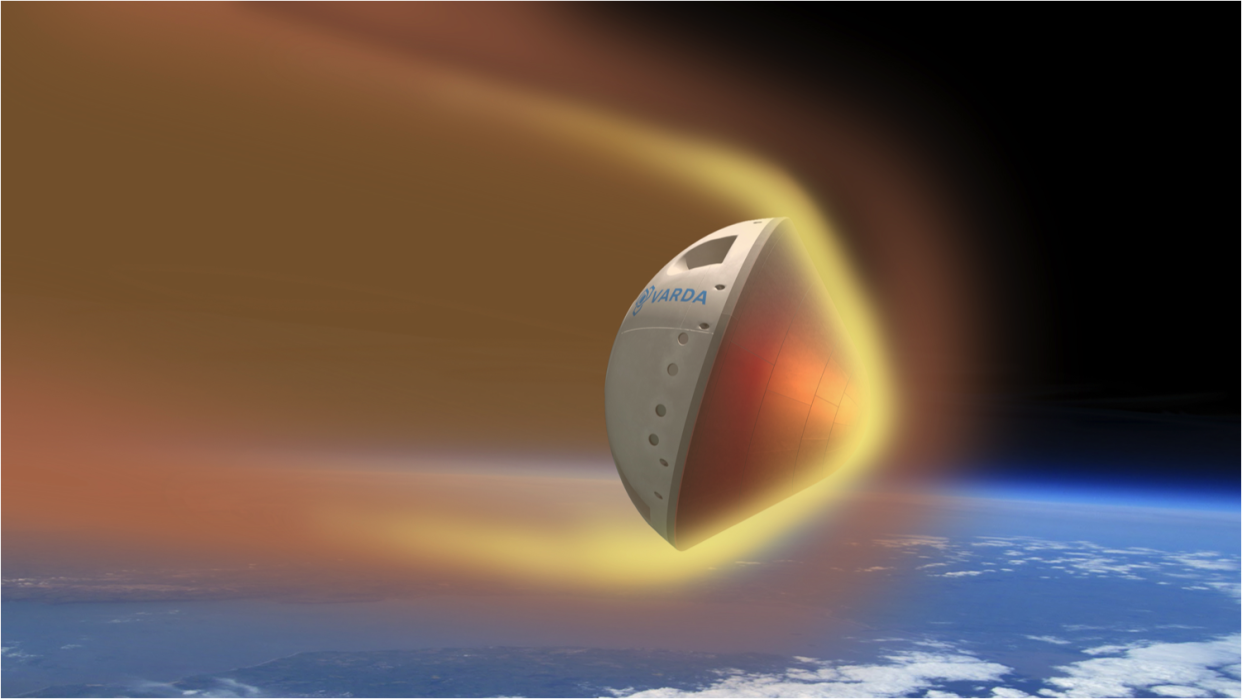Private Varda space capsule to land in Utah today in historic in-space manufacturing reentry (update)

Update for Feb. 21: Varda Space Industries' first-ever in-space manufacturing mission W-1 will return to Earth today with its commercial payload, with a reentry planned over the U.S. military's Utah Test and Training Range (UTTR) or nearby Dugway Proving Ground. Late Tuesday, Varda reported that the W-1 capsule's Rocket Lab built Curie engine successfully executed the 2nd of 4 planned burns for the planned reentry.
A private company's first in-space manufacturing project is about to come back to Earth.
Last week, California-based Varda Space Industries got permission from the U.S. Federal Aviation Administration (FAA) to land the capsule from its W-1 mission in northern Utah.
If all goes according to plan, W-1's 3-foot-wide (0.9 meters) conical capsule will re-enter Earth's atmosphere on Wednesday (Feb. 21), Varda announced on Feb. 15. The craft will land under parachutes at one of two U.S. military sites west of Salt Lake City — the Utah Test and Training Range (UTTR) or the neighboring Dugway Proving Ground.
Related: In-space manufacturing company Varda plans to land its reentry capsules in Australia: report
Varda offers customers the chance to manufacture products such as pharmaceuticals in space, a unique environment with considerable advantages, according to the company.
"These benefits primarily stem from the lack of convection and sedimentation forces, as well as the ability to form more perfect structures due to the absence of gravitational stresses," Varda's website states. "These effects are 'locked' into the material, typically through material crystallization, before being brought back to Earth."
These in-orbit reactions occur aboard the company's W-series capsules, which are designed to survive the fiery trip through Earth's atmosphere at mission's end.
RELATED STORIES:
— NASA awards $150 million for moon power systems, other exploration tech
— Off-Earth manufacturing could help astronauts explore the moon and Mars
— In-space manufacturing could help humanity fight climate change, startup says
Varda's first capsule launched in June 2023, as one of the many payloads on SpaceX's Transporter-8 rideshare mission. While in orbit, the W-1 capsule has been growing crystals of Ritonavir, an antiviral drug used to treat HIV and hepatitis C.
Varda originally planned to bring the capsule and its precious cargo home after a month or two but had difficulty securing reentry approval from the FAA and the U.S. military. That permission finally came last week.
The Varda capsule is integrated into a Rocket Lab Photon satellite, which provides power, propulsion, navigation, communications and other vital services. The Photon will hit Earth's atmosphere on Feb. 21 as well, but most of it will burn up on the way down.
The W-1 landing will mark the second time in less than five months that a spacecraft has touched down in northern Utah. On Sept. 23, 2023, the return capsule of NASA's asteroid-sampling OSIRIS-REx mission landed at the UTTR.
But the area won't host all Varda touchdowns, if all goes according to plan; last fall, the company inked a deal to bring some capsules down in South Australia.

